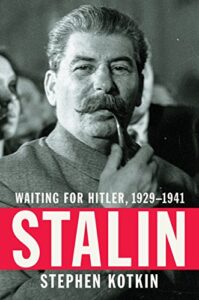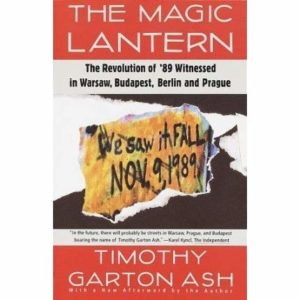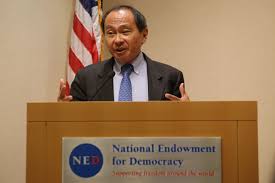
Putin’s aggression in Ukraine has created a window of strategic opportunity for Washington and its allies. If the democracies don’t waste the moment, then a lasting result of the Ukraine crisis could be a tighter free-world economic bloc that makes it harder for autocratic regimes to coerce or seduce, argue analysts Michael Beckley and Hal Brands.
The democracies must now undertake a major multilateral rearmament program and erect firmer defenses—military and otherwise—against the coming wave of autocratic aggression, they write for Foreign Affairs:
In the United States and across Europe, voters pushed governments to focus on nation building at home rather than competition abroad. Fundamentally, however, democratic societies that had grown complacent amid the great-power peace of the post–Cold War era struggled to comprehend just how grave the danger of major war had become. Democratic populations believed that globalization had rendered old-fashioned conquest and imperialism obsolete.
[Democracies] must exploit the current crisis to weaken the autocrats’ capacity for coercion and subversion and deepen the economic and diplomatic cooperation among liberal states around the globe, Beckley and Brands insist. The invasion of Ukraine signals a new phase in an intensifying struggle to shape the international order. The democratic world won’t have a better chance to position itself for success.
Putin personifies despotism’s problem
 “For half a millennium, Russian foreign policy has been characterized by soaring ambitions that have exceeded the country’s capabilities,” Princeton historian and Stalin biographer Stephen Kotkin wrote for Foreign Affairs six years ago. “Beginning with the reign of Ivan the Terrible in the sixteenth century, Russia managed to expand at an average rate of fifty square miles per day for hundreds of years, eventually covering one-sixth of the earth’s landmass.”
“For half a millennium, Russian foreign policy has been characterized by soaring ambitions that have exceeded the country’s capabilities,” Princeton historian and Stalin biographer Stephen Kotkin wrote for Foreign Affairs six years ago. “Beginning with the reign of Ivan the Terrible in the sixteenth century, Russia managed to expand at an average rate of fifty square miles per day for hundreds of years, eventually covering one-sixth of the earth’s landmass.”
Putin personifies the problem of despotism, he tells The New Yorker’s David Remnick:
It’s why despotism, or even just authoritarianism, is all-powerful and brittle at the same time. Despotism creates the circumstances of its own undermining. The information gets worse. The sycophants get greater in number. The corrective mechanisms become fewer. And the mistakes become much more consequential.
Europe’s assertive response to Russia’s invasion of Ukraine has presented a possibility that was hard to imagine a month ago: the European Union as a superpower that can alter the global order, promoting liberal democratic values worldwide. Europe’s new commitments could help counter the global democratic backslide of the past 15 or so years, The New York Times reports:
“Democratic nations and people are sending a united message to Putin that democracy matters, and authoritarians cannot act with impunity, and that’s powerful,” said Michael Abramowitz, the president of Freedom House, which tracks the state of democracy around the world. ….The E.U. has played a role in expanding a global democratic order before. After the Soviet Union’s fall in 1991, the E.U.’s embrace of Eastern European countries empowered new democracies, from Bulgaria to Lithuania.
 That “was one of the biggest democracy-promotion projects in recent history,” said Timothy Garton Ash, a historian at the University of Oxford.
That “was one of the biggest democracy-promotion projects in recent history,” said Timothy Garton Ash, a historian at the University of Oxford.
The Pentagon has developed models of a slogging conflict that brings more needless death and destruction to a nascent European democracy, and others in which Mr. Putin settles for what some believe was his original objective: seizing a broad swath of the south and east, connecting Russia by land to Crimea, which he annexed in 2014. And there is a more terrifying endgame, in which NATO nations get sucked more directly into the conflict, by accident or design, The Times adds.
“The most probable endgame, sadly, is a partition of Ukraine,” said retired Adm. James G. Stavridis, the former supreme allied commander for Europe, pointing to the outcome of the Balkan wars in the 1990s as a model. “Putin would take the southeast of the country, and the ethnic Russians would gravitate there. The rest of the nation, overwhelmingly Ukrainian, would continue as a sovereign state.”
But other analysts beg to differ.

Former NED board member Francis Fukuyama
Russia is heading for an outright defeat in Ukraine and Putin will not survive the defeat of his army, according to Stanford University’s Francis Fukuyama. He gets support because he is perceived to be a strongman; what does he have to offer once he demonstrates incompetence and is stripped of his coercive power? he writes for American Purpose:
The invasion has already done huge damage to populists all over the world, who prior to the attack uniformly expressed sympathy for Putin. That includes Matteo Salvini, Jair Bolsonaro, Éric Zemmour, Marine Le Pen, Viktor Orbán, and of course Donald Trump. The politics of the war has exposed their openly authoritarian leanings.
A Russian defeat will make possible a “new birth of freedom,” and get us out of our funk about the declining state of global democracy, Fukuyama adds. The spirit of 1989 will live on, thanks to a bunch of brave Ukrainians.
The future is not as simple as a new Cold War between democracies and autocracies, The Times adds: India, the world’s most populous democracy, is friendly with Russia and has refused to condemn Putin’s war in Ukraine. The U.S. is dealing with its own illiberal movement. Inside Europe, democratic institutions have deteriorated in Poland and more severely in Hungary.
 “There are serious internal problems within Europe,” said Mujtaba Rahman, an analyst at the Eurasia Group.
“There are serious internal problems within Europe,” said Mujtaba Rahman, an analyst at the Eurasia Group.
March 16, 10:00am – House Committee on Foreign Affairs – Subcommittee on Europe, Energy, the Environment and Cyber Hearing: Early Signs of War Crimes and Human Rights Abuses Committed by the Russian Military During the Full-Scale Invasion of Ukraine
-
- Mr. Christo Grozev, Lead Russia Investigator, Bellingcat
- Anthony Clark Arend, Ph.D., Professor of Government and Foreign Service, Chair, Department of Government, Georgetown University
Putin personifies the problem of despotism, @Princeton historian Stephen Kotkin tells @NewYorker‘s @rimmnick. Despotism creates the circumstances of its own undermining. The information gets worse. The sycophants get greater in number.https://t.co/h7nWSc7cKp
— Democracy Digest (@demdigest) March 14, 2022







